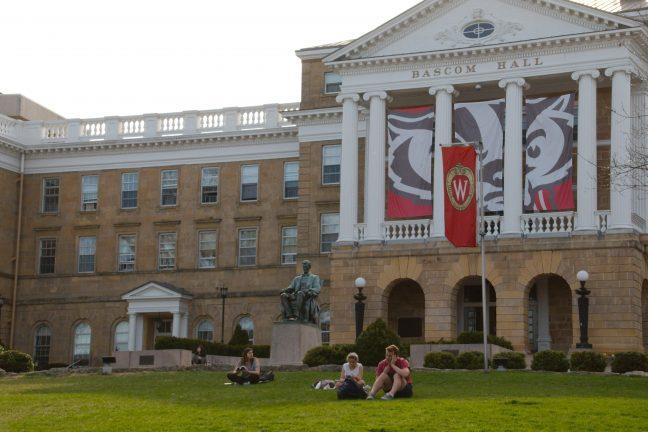The United States’ higher education system and the universities tied to it are well known and respected internationally. With around 20 million students enrolled in U.S. colleges — a number steadily increasing — the American higher education system is being chosen by more and more people every year. It is also extremely different from any other college system around the world.
How exactly is college in the U.S. different from those abroad? Are these differences inherently good? And how is America’s system viewed as a whole, not only in the U.S. but around the world? In examination of how U.S. colleges shape up against their competitors abroad, there are some crucial deficiencies within our system of higher education that remain largely unaddressed even as enrollment numbers continue to climb.
With Wisconsin tuition freeze set in stone, out-of-state students likely to pay the price again
While all countries have different requirements and processes, there are a few key things that set America apart from most other nations in regards to how our colleges work.
For one, it is highly uncommon to come into university undeclared anywhere outside of the United States. Most colleges abroad allow students to start on coursework directly related to their field of study right away and don’t have the general education requirements that almost all U.S. universities do. Because of this, it usually takes students much less time to obtain a bachelor’s abroad than it does in the U.S.
The cost of college is also starkly different in the U.S. than in most other countries. Some colleges in Europe, for example, have made their state schools essentially tuition-free — a fact that draws many American students into foreign universities when compared to our five-digit price tags.
Campus life is definitively more pronounced within the American college experience than anywhere else in the world. While most schools abroad do have a centralized campus, America wins when it comes to vibrant campus culture.
Looking at UW specifically, a lot of the experience for students comes from simply being on campus with everything it offers — game days at Camp Randall Stadium, student org fairs at the Kohl Center and student-exclusive events ranging from ice skating to art class. There is a reason why American state schools are so well known for their school pride and bustling campus energy.
Pros and cons of the American college system
Let’s begin with the pros. To start, a U.S. bachelor’s degree is highly sought after and is generally well-respected both in America and abroad when you enter the job market. For example, UW is ranked 31st in Shanghai Ranking’s assessment of world universities and 41st by US News. U.S. universities consistently rank highly or at the top of these lists.
We also have a larger array of major options to choose from. Often, international schools will offer a handful of academic pathways that are more general but UW offers over 125 separate majors and certificates.
UW campus shows signs that vaccinations are best in fight against COVID-19
The general education requirements in America also give students more time to decide exactly what degree they want to pursue. Vibrant campus life also makes it easier to feel connected to your school and fellow undergrads, allowing students to build life-long relationships.
So college in the U.S. is a nice stepping stone between high school and full adulthood — and the resources available to you as an American college student are not accessible anywhere else in the world.
Looking at the cons, it won’t be surprising that the first one to come to mind is the cost.
American tuition rates are insanely high compared to the low cost or free education students get at universities elsewhere in the world. Even in-state level tuition at UW is a whopping ten grand per year, without even considering textbooks, housing, transportation and other personal expenses. Out-of-state tuition is even harder to bear financially.
To make matters worse, it’s also harder to obtain financial aid and scholarships in the U.S. because of how competitive the market has become.
One of America’s strongest assets is also one of its downsides — the diversity of our universities. Degree requirements and major options look different in every state — without even taking into consideration private institutions. For example, a UW student is getting a much different education than someone studying at a private liberal arts college on the East Coast.
What needs to change and how
So how do we improve our higher education system? Well, the number one priority should be making them more financially accessible.
There is a reason why the national percentage of American students who choose to go to college abroad is rising every year — it’s because it’s more financially feasible than college in the U.S., even when lower in-state tuition options are considered.
UW expands sexual assault services to UHS, campus rape culture persists
There have been many debates about whether or not it is a good idea to federally fund higher education, but without dedicating an entire other argument to this possibility, it is suffice to say the notion is not as radical as some believe.
Another improvement that should be made to the American college system is creating a more universal standard of courses. Every state offers a different ratio of general education requirements, majors and courses — and that isn’t even accounting for private colleges.
Though the diversity of American education is one of its strongest assets, it would be helpful to have a baseline standard every university needs to meet.
Fiona Hatch ([email protected]) is a freshman studying political science and international studies.




















